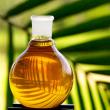Site sections
Editor's Choice:
- Exhibition of autumn crafts "Amazing near" in kindergarten
- Technology and step-by-step instructions for nail gel: steps, rules, process
- White spots on the nails, reasons for what to do, white spots on the nails and folk signs
- Available methods for rapidly increasing blood leukocytes
- Nail and skin fungus will not resist the coffee grounds
- Crocus furniture exhibition. Furniture exhibitions
- Owl tattoo on arm value
- The biggest members in the world
- Fractures of the phalanges of the toes of the photo
- What is “bad” and “good” cholesterol
Advertising
| Itching body causes treatment. Skin itching of the skin |
|
Pruritus – unpleasant feelingwhich accompanies many skin diseases and internal organs. It is mainly manifested along with other symptoms (redness, swelling, etc.) that accompany it or “lag” in the manifestation and appear a little later - it all depends on the etiology. The occurrence of itching is associated with irritation of receptors located in the skin and mucous membranes, which through the nerve paths transmit signals to the central parts of the nervous system. Various biologically active substances act as internal stimuli: amines, peptidase, taurins, histamine, products of enzymatic processing of certain products in the gastrointestinal tract in violation of the functioning of the intestine itself, as well as of the liver and pancreas. External stimuli of the skin receptors include: electrostatic exposure (for example, as a result of skin and synthetic tissue interaction), insect bites and crawling, slight oscillatory movements of vellus hair, chemicals that make up detergents, and plants. Conditionally itchy without external manifestations has the following classification: by reason of occurrence, severity, localization and time of occurrence. The main causes of itching without concomitant manifestations include:
Dry skinDryness or xerosis - characterized by a dull shade, the presence of age spots, a feeling of tightness and a finely porous structure of the skin. On the surface of the skin of this type from minor mechanical irritation occur microtrauma, peeling. There is a feeling of discomfort in the places of greatest friction and flexor surfaces. Depending on the tone skin integument experts distinguish:
Causes of dry skin include:
Skin aging
The causes of itching in old age are closely related to the anatomical and physiological changes that occur in all body systems, including the skin. First of all, these changes relate to blood vessels (atherosclerotic changes occur), the function of the glands of external and internal secretion, atrophic changes occurring in the sweat, sebaceous glands, nerve endings, reduce bowel function. For the elderly, against the background of the above changes is characterized by dry skin type with reduced tone. Scratching in old age can any part of the body. Itching occurs after 60 years, most often in men. Manifestations of skin itching in women are more often observed in the post-menopausal period, which is accompanied by hormonal changes. Its intensity increases at night. Over time, scratching marks, foci of inflammation in the form of eczema appear at the site of itching. PregnancyDuring pregnancy, pruritus has various causes and localizations. At the end of the second and during the third period of pregnancy, the fetus gains weight and grows rapidly. As a result, the skin in the lower abdomen is subjected to stretching, which is accompanied by itching, and in some pregnant women the appearance of stretch marks (stretch marks). Similar processes occur in the skin of the growing breast. Another reason for itching during pregnancy is cholestasis, caused by changes in the liver. Cholestasis can occur in the last months of pregnancy and is accompanied by itching of the plantar and palmar surfaces. In some women, it "rises" on the legs, thighs, forearms and shoulders.
In addition, women may experience itching on objects, chemicals to which no reaction had previously occurred. The main reason for the above changes, including cholestasis, is hormonal alteration, which leads to a decrease in immunity. Oncological diseasesMalignant diseases lead to a change in metabolism under the influence of the growth of tumor cells. The process of tumor growth and metastasis is accompanied by the appearance of a number of symptoms characteristic of cancer. One of them includes itchy skin, changing its color and turgor. Skin itching is mostly common generalized and occurs in one of three cases of cancer. Another cause of itching in a malignant disease is associated with the release of special substances by modified cells, such as: kallikrein and histamine. Side effects of drugsSome medications may cause itching of the skin, which later join other symptoms. For example, urticaria is an allergic reaction that occurs in response to the administration of certain antibacterial drugs (penicillins), insulin, vitamins and analgesics. Urticaria begins with severe itching of various skin areas. Subsequently, blisters appear on the itchy areas of the skin, common symptoms join: fever, headache, etc. In some cases, itching occurs after applying individual ointments, creams and tinctures to the skin. Aquatic itching
The diagnosis for this pathological condition is established if:
A similar pathological reaction is observed with the same frequency in men and women aged 16 to 80 years. Some patients experience itching when the outside temperature changes. Favorite localization of itching is the skin of the legs, less often itches in the torso, head and hands. Sometimes it is so pronounced that it can lead to irritability and depression. Diseases of the nervous systemFor example, in dermatozoan delusions (mental illness with tactile hallucinosis syndrome), patients complain of generalized pruritus. This type of delusion is characteristic of schizophrenia and some psychoses. RemediesTreatment of pruritus should deal only with a specialist. After consulting with your doctor, you can follow the recommendations listed below, which will speed up recovery and ease the condition:
Itching is called discomfort, a feeling that causes an unbearable desire to scratch. Causes of pruritus are varied. Most common cause This condition is considered an increase in histamine levels. This substance is synthesized in the skin, causes irritation of nerve endings and, as a result, causes itching. Often itching occurs from insect bites, mechanical skin irritations, etc. It is necessary to take a strong desire to scratch oneself very seriously, because this condition can be one of the symptoms of a serious disease. Here are some of the most common diseases that are accompanied by itching: Neurodermatitis The cause of neurodermatitis are frequent stresses, irritations, etc. The disease is always accompanied by severe skin itching, which increases in the evening and at night, as well as in stressful situations. Neurodermatitis should always be treated so as not to suffer from the constant unbearable desire to scratch. With neurodermatitis, which occur on the nerves of the soil, taking sedatives such as Novopassita or motherwort tincture is indicated. To eliminate itching, drugs such as Tavegil, Suprastin are usually recommended. You can take Zyrtec, Loratidine, Erius, etc. It is useful to use ointments and creams with antihistamine and tonic action. Allergy When exposed to the human body of some allergens, begins the increased production of protective proteins - antigens. By contacting allergens, they form a substance - histamine. It has the ability to irritate nerve endings, causing severe itching, redness of the skin. The most common substances that cause allergies are household chemicals, cosmetics, plant pollen, animal hair, dust, lint, food, etc. It is their effects on the body that can cause allergic skin diseases such as contact, atopic dermatitis and urticaria. The main symptoms of this disease are pronounced itching and redness of the affected area. When late treatment of dermatitis on the skin appear watery blisters. For treatment allergic diseasesuse antihistaminesblocking enhanced histamine production. In addition to pills, apply topical agents - ointments, creams. A good effect is a bath decoction medicinal plants, for example, celandine, oregano, train, nettle, chamomile. Xerosis (increased skin dryness) Quite often, the skin itches because of its dryness. The cause of this condition can be drying the skin. detergents, aggressive exposure to sunlight, aging of the skin. Due to severe dryness, the work of the sweat, sebaceous glands is disturbed. This causes irritation, which causes itching. To prevent skin from becoming dry after washing, apply moisturizing, restoring its structure. cosmetics, use soft water. The measures taken will contribute to the disappearance of dryness and itching. Scabies The disease is caused by a scabies mite. It is very easy to infect them by visiting public baths, swimming pools and even public transport. Scabies is so called because it causes a strong, intolerable and persistent itching. Diabetes Skin may itch due to high sugar in the blood what happens when diabetes. The disease causes dehydration, which leads to dryness of the skin, and, as a result, itching. In addition, this disease is often accompanied by fungal infections, which are also accompanied by an unbearable desire to scratch. Treatment of pruritus Treatment, first of all, is based on identifying the underlying disease and getting rid of it. Therefore, it requires a very thorough, full medical examination, which allows you to make an accurate diagnosis. General therapy usually involves the use of sedatives and anxiolytics. Physiotherapeutic methods are widely and successfully applied, for example, an electrosleep, adrenal inductothermy. Useful contrast shower, sulfur and. Excellent therapeutic effect has sea water. Outwardly use antipruritic agents. Among them can be noted 2% tincture of salicylic or carbolic acid, menthol solution or dimedrol. You can use diluted with water 1: 1 natural apple cider vinegar (6%). Use dimedrol, anesthesin, glucocorticosteroid drugs. In severe cases, the doctor may conduct a Novocain blockade of the corresponding nerves. Svetlana, www.sayt - This is an unpleasant sensation that occurs on the surface of the skin, which causes an overwhelming desire to scratch. But the more we scratch the affected area, the stronger the discomfort becomes. Itching of the skin occurs when irritation of the nerve endings, which, in turn, transmit information to the brain. The reasons for this reaction can be both external and internal. In some diseases, after the itching of the skin, a noticeable external irritation appears: blisters, sores, peeling. Pruritus: How to cope? There are many different causes of pruritus. Causes of pruritus
It is obvious that sometimes itching is a symptom of a skin disease or a disease of internal organs, and sometimes it is an independent disease with its external manifestations. 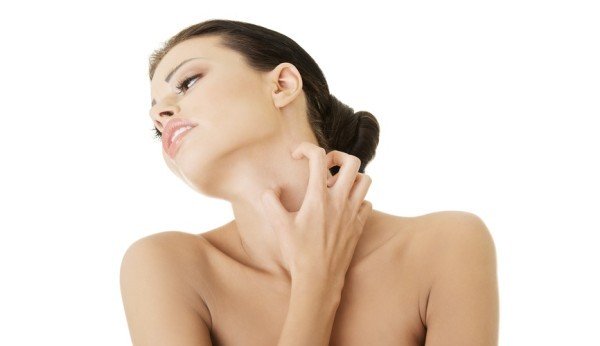 Pruritus: symptom or disease?Unfortunately, doctors often do not pay attention to itchy skin - by itself it is not dangerous for the life of the patient. In this case, itching appears before other signs of many diseases and is the most painful of all the symptoms. Constant itching sensations do not allow to sleep, lead to nervous disorders. Pruritus is accompanied by various symptoms depending on the nature of the disease: consider skin and non-skin diseases. Skin diseases
Systemic diseases and itching
Itchy skin: what are the formsUniversal (Generalized) - throughout the body. It is both a symptom of some diseases and a manifestation of allergies, as well as an independent disease - 3 subspecies are known:
Local (limited)pruritus - appears in certain areas, for example, in the genital area, on the head, in the zones of the elbow and knee folds. 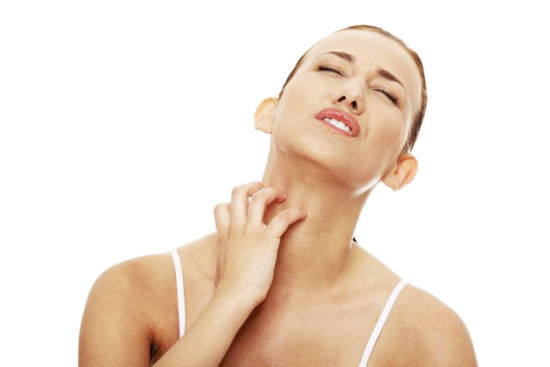 Itchy skin Itchy skin Symptoms of pruritusBe sure to consult your doctor if you notice the following symptoms:
For the diagnosis may require a comprehensive examination: to determine the cause of itching, you must pass a series of tests and visit an allergist, dermatologist, neurologist, endocrinologist, gynecologist. After that, treatment will be prescribed. Treatment of pruritus Treatment of pruritus begins with the elimination of its pathogen. After determining the cause, the doctor will prescribe the necessary therapy. However, the skin irritation itself is not as harmless as it seems. Severe itching skin causes serious nervous disorders if you constantly think about how to scratch yourself or cannot sleep because of it. Also, constant itching provokes the appearance of scratching, which can get an infection. To relieve an itchy sensation, along with the treatment of the underlying disease, attention should be paid to the affected areas of the epidermis. Is required a complex approach:
Topical skin itching treatmentsIn parallel with the reception medicines means are used for the local treatment of itching, which are particularly effective for local skin lesions. Modern ointments are antihistamines with antipruritic action. With a strong exacerbation, compresses can be performed with diluted pruritic compounds (for example, salicylic 2% tincture, carbolic acid). 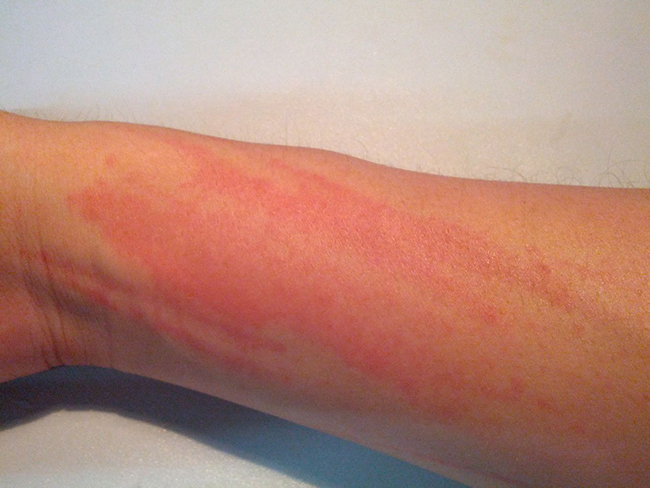 Itchy skin Itchy skin Well in the fight against the disease have proven themselves funds from the series "La Cree". Medical cosmetics "La Cree" provides an integrated approach to soothe skin itching and relieve irritation from scratching. Licorice extracts, turns, violets, and bisabolol, combat skin itching and inflammation. And panthenol and avocado oil soften the epidermis and stimulate its recovery. Treatment of itchy skin at homeAs a supplement to the main treatment and increase its effectiveness, therapeutic methods can be combined with home methods. The following actions will ease the itchy sensation:
Exist folk remedieswhich will help to reduce itchy skin.
Remember that in any case it is important to start treatment as soon as possible. Do not wait for deterioration - contact your doctor immediately, as you noticed the first signs of a possible disease. On the basis of the Clinic of Dermatovenerology and Allergology of the European Medical Center, the Center for Itching was created. Specialists in various areas provide outpatient and inpatient care to patients with acute and chronic itching. During treatment, the patient is offered a detailed examination according to the AWMF-Leitlinie protocol (Association of Scientific Medical Societies in Germany) and European protocols for the management of patients with chronic itching. The experience of highly qualified doctors combined with wide spectrum In most cases, the possibilities and methods of examination in the EMC help to identify the causes of itching, which, together with a comprehensive, individually tailored treatment, helps to achieve maximum results from therapy. In the literature, the term “itch” is understood as a sensation that causes a targeted carding reflex. In the scientific literature, itching is also denoted by the term “pruritus” (from lat. Prūrio - scratching). Often this phenomenon is one of the first symptoms of not only skin, but also internal diseases, diseases of the nervous system, hormonal disorders and even tumors. That is why it is currently regarded as an “interdisciplinary symptom” and in some cases even isolated as a separate disease. General (generalized) and local (localized) pruritus are distinguished. Acute generalized - often the result of food, drug allergies, reactions to cold, heat, etc. Often, generalized pruritus is a symptom of serious diseases: diabetes, diseases of the gastrointestinal tract, kidneys, malignant neoplasm and etc. Localized itching occurs most often in the scalp and anogenital area and is paroxysmal. The causes of the development of this phenomenon in the anal area are usually considered to be chronic. inflammatory processes in the pelvic organs, infections, including helminthic invasions and others. Long-existing sensations are often complicated by the development of a bacterial infection, candidiasis. Localized itching is also observed in the area of rashes in various skin diseases: psoriasis, atopic dermatitis, etc. The frequency of itching in skin and systemic diseases
Itching persisting for more than 6 weeks is defined as chronic. Its frequency among the adult population is, according to research, 8-9%. Chronic phenomena are observed in various skin diseases (atopic dermatitis / neurodermatitis, eczema, prurigo, psoriasis, etc.) and systemic diseases. Itching in various skin diseases
Mechanism of development of itchThe mechanisms of itching in chronic kidney diseases are not fully known. It is assumed the role of metabolic disorders, as well as the involvement of opioid receptors in the process and increased skin dryness. Itching develops, usually in 2-3 months. after the start of hemodialysis, in 25-50% of cases it is generalized, in other cases it is localized. As a rule, itching is most pronounced in the back and face. In liver diseases, pruritus is a very common symptom (observed in 80% of cases of cirrhosis of the liver, in 15% of all cases of viral hepatitis C). As a rule, it begins in the area of palms and soles, as well as in the area of friction of clothing. Characterized by its gain at night. Over time, itching takes a generalized nature, while combing the skin almost does not bring relief. With endocrine pathology, for example, diabetes mellitus and hyperthyroidism of the parathyroid glands, itching may be accompanied by a burning sensation, tingling, “crawling goosebumps”. A lack of vitamin D, minerals, iron also in some cases leads to the development of this phenomenon. When iron deficiency is often observed “aqua itching” (when in contact with water). As a rule, the restoration of normal levels of iron and minerals leads to the disappearance of any sensations within 2 weeks from the start of therapy. Itching can be one of the symptoms of tumors and blood diseases. As a possible mechanism of its occurrence, toxic effects are assumed, allergic reactions on the components of tumors, as well as a direct irritant effect on the nerves and brain (with brain tumors). Systemic diseases that may be accompanied by itchingMetabolic and endocrinological disorders:chronic renal failure, liver diseases, diseases of the thyroid and parathyroid glands, iron deficiency. Blood disorders:true polycythemia, myelodysplastic syndrome, lymphoma. Neurological diseases:multiple sclerosis, neuropathy, head tumors and spinal cord, postherpetic neuralgia. Psychosomatic and psychiatric disorders: edepression, eating disorders, bipolar disorders. |
| Read: |
|---|
New
- Which leaves blush first in autumn
- Sequence of procedures
- The program of intensive moisturizing of the skin on cosmetics bark
- What you need for acrylic powder
- What does owl mascot mean
- Analyzes for pancreatitis: what research should be done and what indicators show
- Owl - a talisman to attract money and good luck
- What bird screams at night with a kitten's voice?
- Cholesterol and stress
- Manicure at home


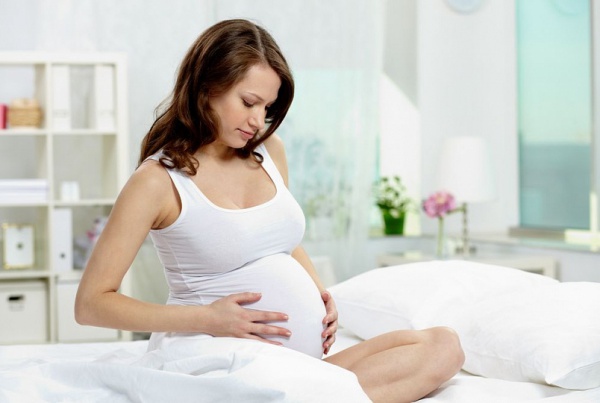

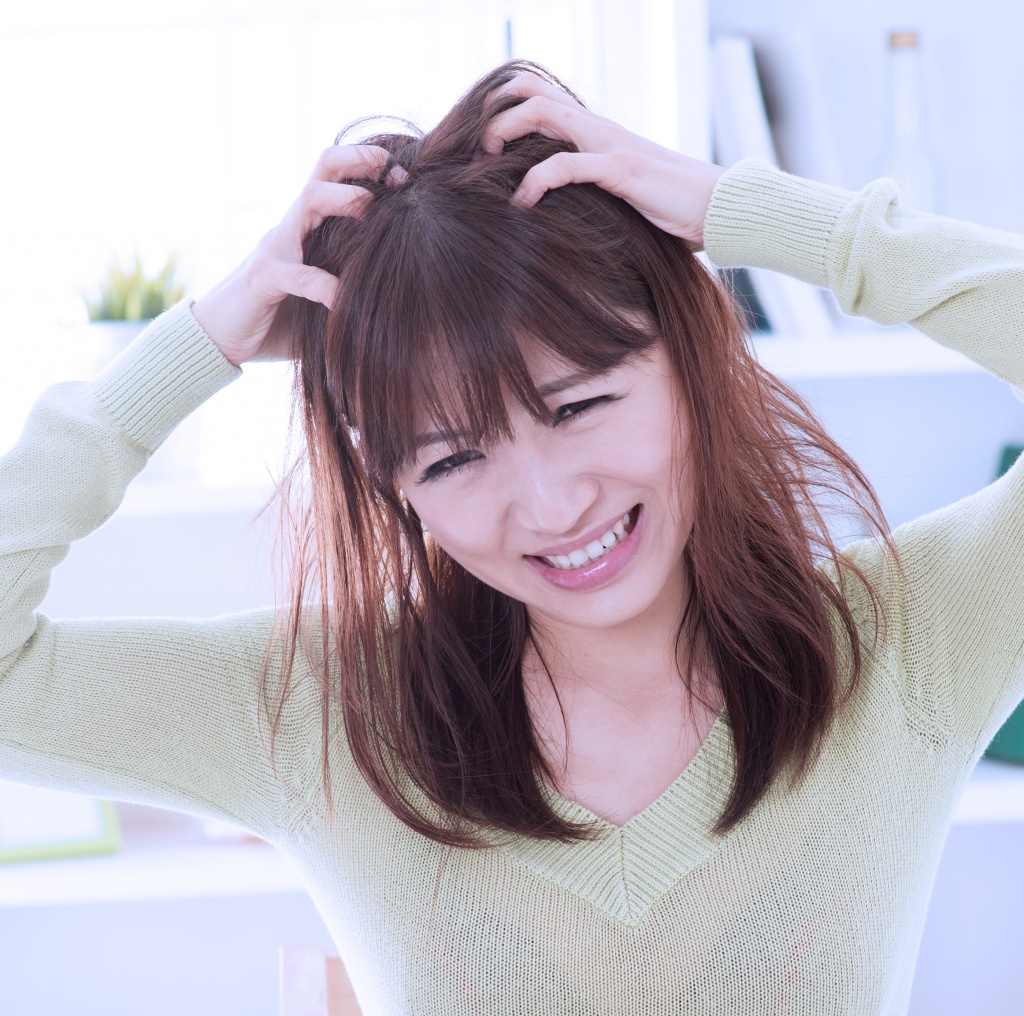 Pruritus: What will help?
Pruritus: What will help?